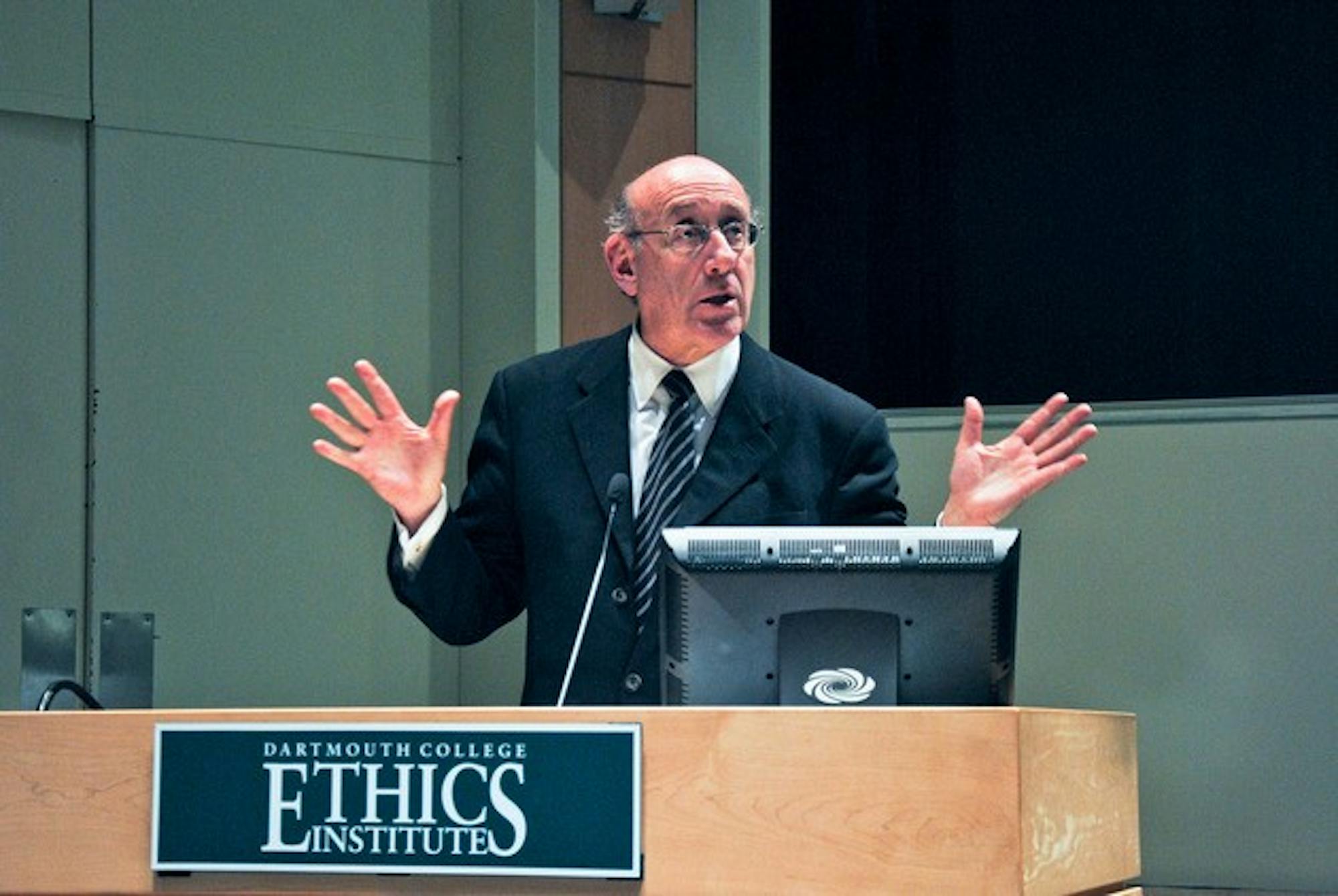Feinberg discussed the ethical difficulties of assigning monetary values to compensate for the loss of human life.
"In administrative solutions for death, all compensations should be equal," Feinberg said. "Allowing different amounts to be allocated for 9/11 victims creates the divisiveness we are trying to avoid."
Feinberg, who has been involved in both public and private claims distribution programs, said he earned the media title of "pay czar" in 2009 following his appointment to the federal Troubled Asset Relief Program, for which he determined compensation for senior executives receiving government bailouts.
"There are curve balls and unique problems," he said. "The pay czar' problem is one where you're trying to come up with a way to keep companies afloat and protect taxpayer investments as well as deal with populist anger about the bailout."
Feinberg said he presided over more than 1,500 hearings during his time as special master of the September 11th Victim Compensation Fund in order to give people the opportunity to express themselves to him directly.
"Those hearings pose dilemmas as to how you treat a claim," he said. "What ethical obligations do you have?"
He described the experience of listening to audiotapes of those trapped in the World Trade Center and listening to people who had recently lost loved ones in traumatic circumstances as an "emotional roller-coaster."
Feinberg said he is cautious about the applicability of the claims programs with which he works. The court system has historically been the conventional way to distribute compensation and cannot be lightly bypassed, he said. "You have to be very, very careful when you carve out funds for special compensation," Feinberg said. "Bad things happen to good people every day. There was no fund for the Alabama tornados three weeks ago or for the victims of [Hurricane Katrina]. It has to be a very strange, rare, unique situation for policy-makers to decide that public money should compensate only certain people."
Feinberg said his main concern with claims programs is the delegation of so much authority to just one person. Though he conceded that claims programs can be efficient, he said he worries about the lack of oversight or checks on their power.
"Comments about the pay czar' in the press raise serious questions," he said. "I'm not sure that it's sound political science to delegate this type of authority to people and ask them to do this. My thesis is clear: These programs may work, but don't use them that often. They should not be the way of the future. I am a trial lawyer by training, and I question the wisdom of these programs."




